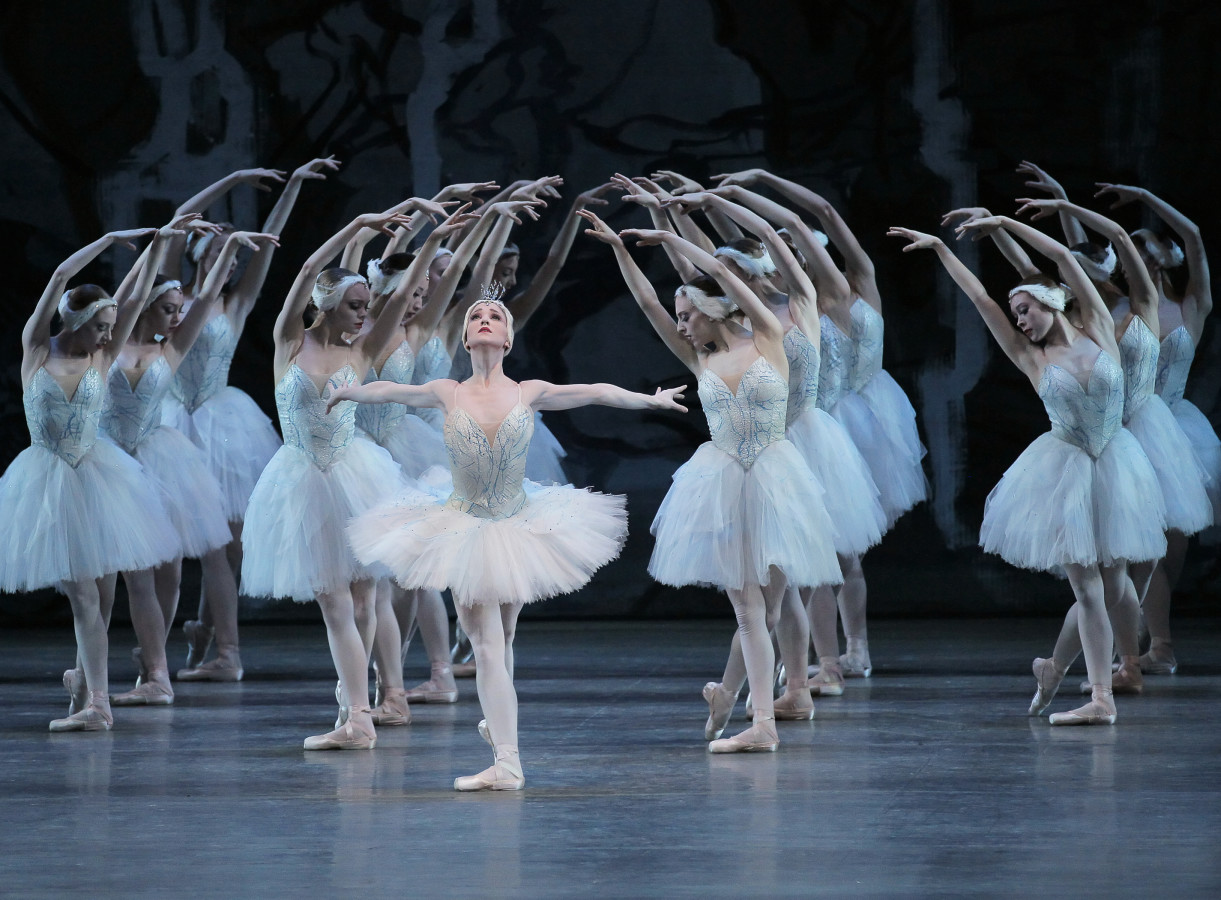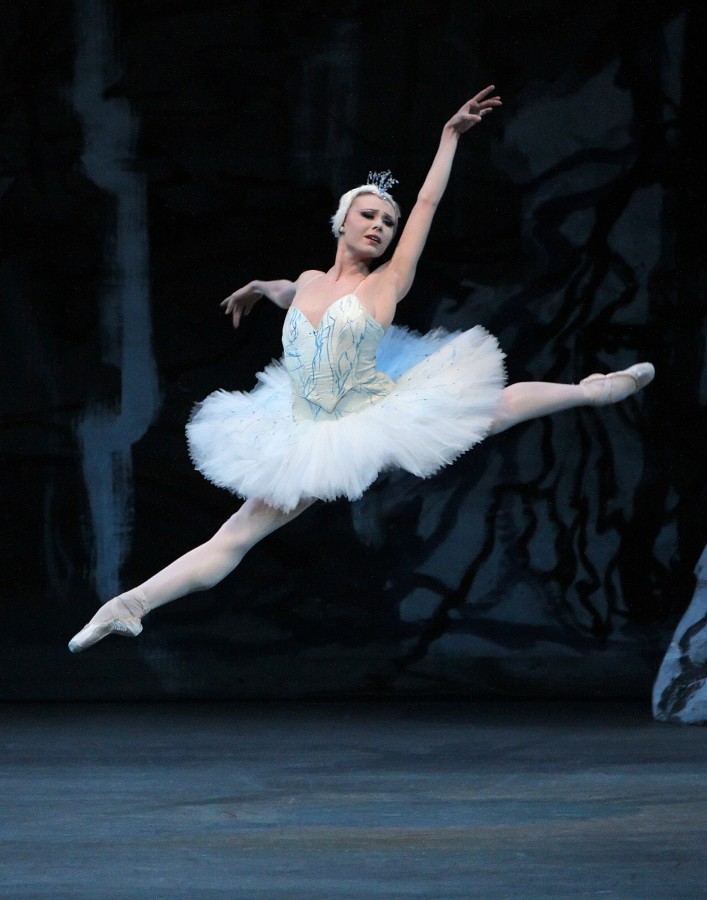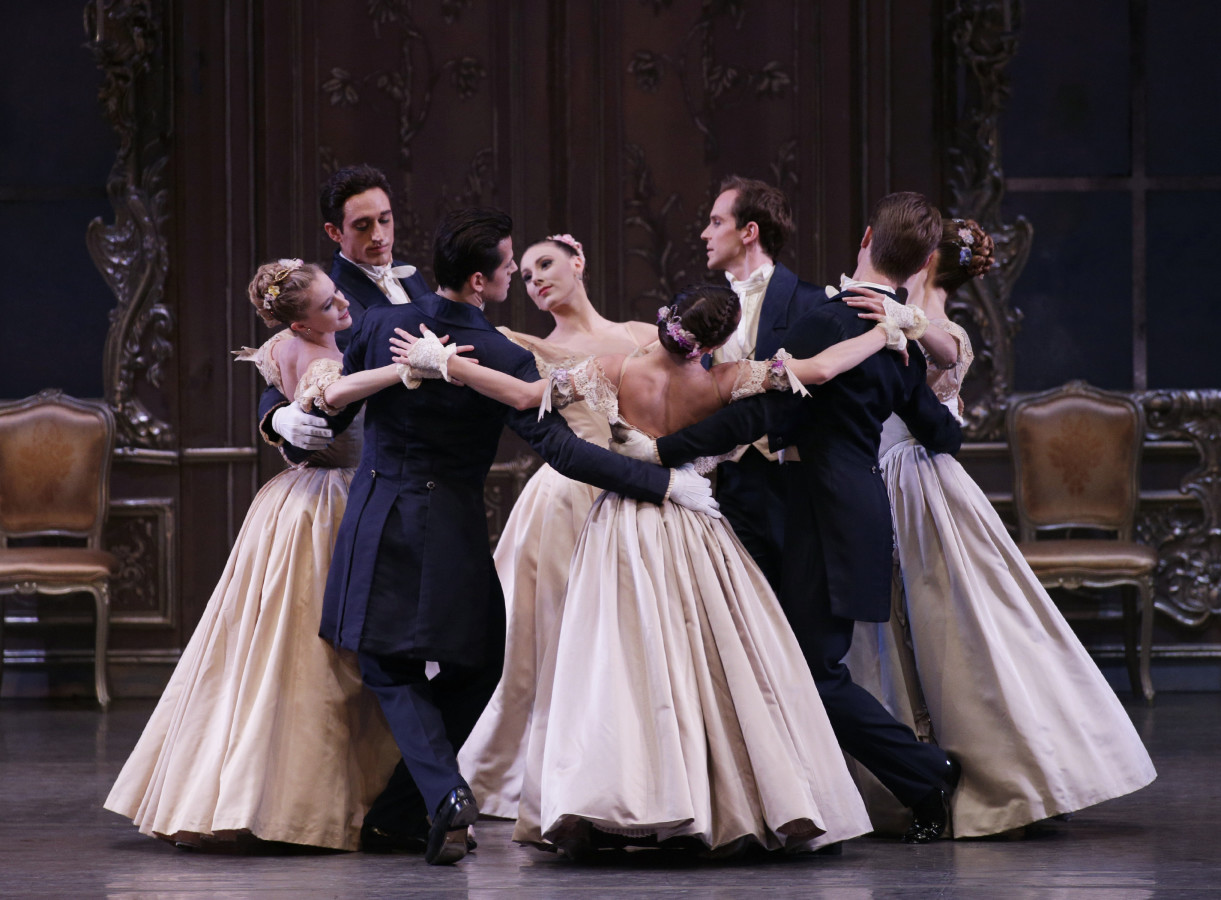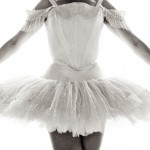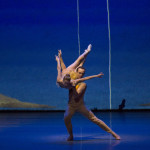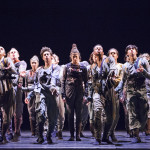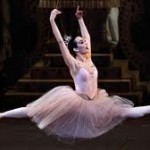Before New York City Ballet sprang five world premières on its discriminating public this season – four of them by young male choreographers – it lured us into lush, familiar spaces with Peter Martins’ full-length Swan Lake and a double bill pairing Balanchine’s Liebeslieder Walzer and Tschaikovsky Suite No. 3.
The miracle of Sara Mearns as Odette-Odile on opening night, and the cruise missile known as Ashley Bouder on the second night, amply offset the dullness that afflicted much of the choreography in the first act.
Oddly, there is no sign of a lake anywhere in this 20th century Swan Lake.
Which may be a warning from Danish set designer and geologist Per Kirkeby about the vicissitudes of global warming. His chilling, abstract backdrops for the classic story ballet’s “white” scenes call to mind the desolate frontiers of Russia’s northernmost climes, known as Franz Josef Land. Summer home to millions of migratory sea birds, Franz Josef Land is a laboratory for scientists who have been measuring the erosion of permafrost and the rise in sea levels, and observing the increasingly desperate behavior of the resident wildlife.
Against Kirkeby’s rugged designs, choreographer Peter Martins’ take on the classic Russian fairy tale evokes the struggle of environmentalists against the carbon-emitting forces of evil. Searching for meaning in life, the spoiled, bored Prince Siegfried is spurred to rescue a flock of exquisite, helpless creatures – from which ordeal he emerges a sadder but nobler man. His nemesis, the evil sorcerer Von Rotbart, wields a gold cape that blazes under Mark Stanley’s imaginative lighting and encircles Odette as she bourrées offstage – a visual metaphor for the corporations who decimate our fragile ecosytems.
Martins deploys his 28-strong posse of swans not in the austere military formations that we are used to seeing in most productions, but in intricate, constantly dissolving, wavelike patterns that suggest the movement of tides, the melting of glaciers, the shifting of shorelines. The mute swan queen Odette telegraphs the plight of her flock through the urgent fluttering of her limbs and the eloquent stabbing of her pointes into the permafrost.
Though at one level a tragic love story, this Swan Lake downplays the romantic angle. Despite the unusual amount of hugging that Martins has introduced into the classic pas de deux, and even some daring and untraditional caresses, there is little erotic tension between the prince and swan princess. This prince is on a mission. Odette serves as a catalyst for his evolution into an activist, but she is destined to remain a swan. In the brilliant final scene, she melts into a receding tide of swans, leaving the stricken Siegfried to take his fight to new lands.
Sara Mearns’s white swan on opening night drew the shape of sorrow in long serene phrases that conveyed the vulnerability of her entire flock – whereas Ashley Bouder on the following night gave a feistier, less lyrical reading. She would occasionally rush ahead of the music then hold a balance for a trifle longer than necessary, playing her usual virtuosic games with musical phrasing.
Whereas Mearns seemed to smell trouble the moment she and Tyler Angle locked eyes, Bouder conveyed an all-American “can do” spirit when crossbow-wielding Andrew Veyette stumbled into the forest.
– Click here to read our full review of the opening night cast (Mearns/Angle) on Bachtrack and here to get the lowdown on the second night’s cast (Bouder/Veyette) in the Huffington Post. –
It was remarkable that the waltzing couples in Liebeslieder did not doze off on the brocaded divans that furnished the Viennese ballroom, so anemic was the rendering of Brahms by the quartet of singers on October 1st. The singers finally sprang to glorious life in the very last love song – which was 32 love songs too late.
Sara Mearns, Ask la Cour, Justin Peck, Ashley Laracey, and Jennie Somogyi rose above the lackluster score.
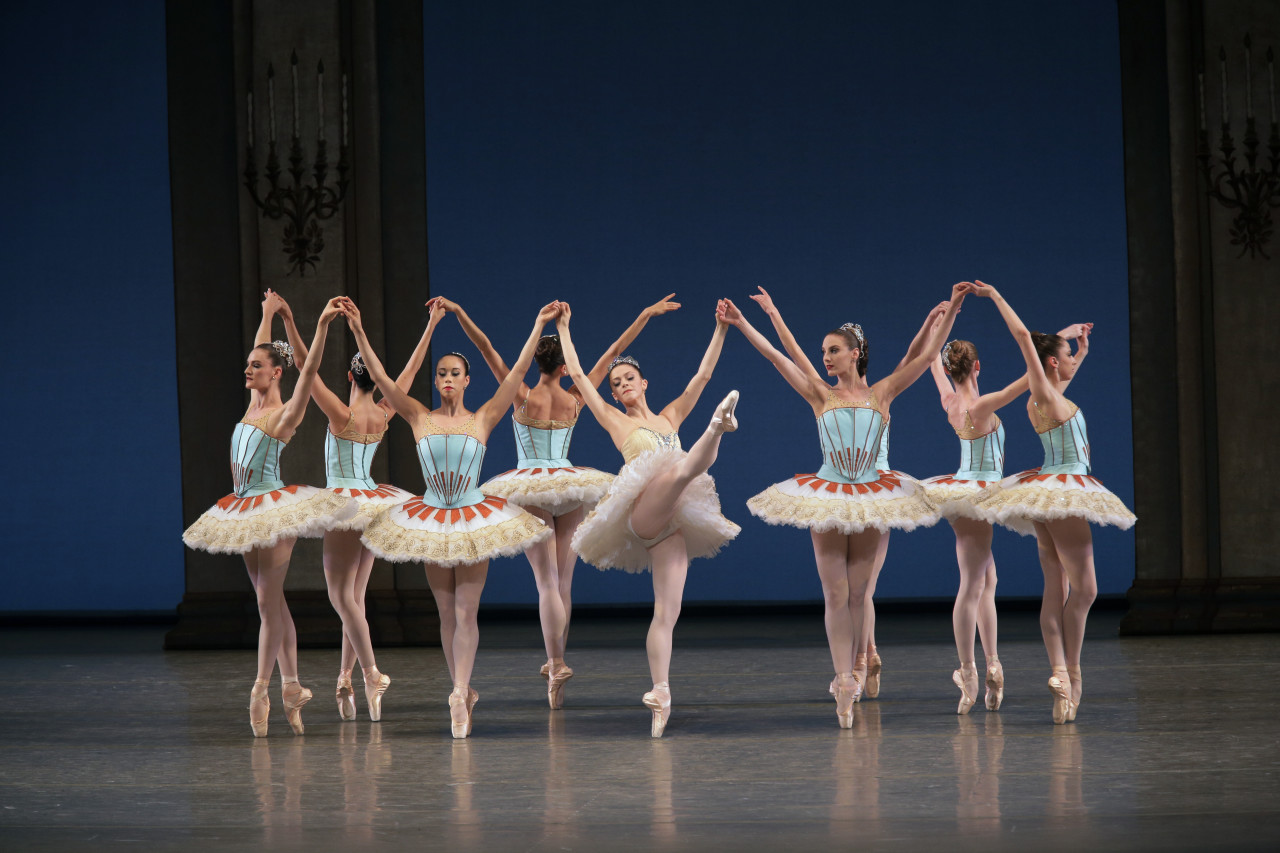
Megan Fairchild and her ladies-in-waiting in the final movement (Tema Con Variazioni) of George Balanchine’s TSCHAIKOVSKY SUITE NO. 3 (Photo: Paul Kolnik)
The Tschaikovsky Suite, always a crowd-pleaser, closed the evening with crisp, spun-sugar tutus and blazing chandeliers – but not before a flotilla of mermaids in floaty chiffon mesmerized a handful of love-struck poets in ruffled silk shirts.
The outstanding performance of the evening belonged to Taylor Stanley in the Valse Mélancolique, as he traced the urgent sonorities in the score, with its gypsy undertones. The quirky, daring Lauren King was a perfect match for him.
– Click here to read our full review on Bachtrack. –

